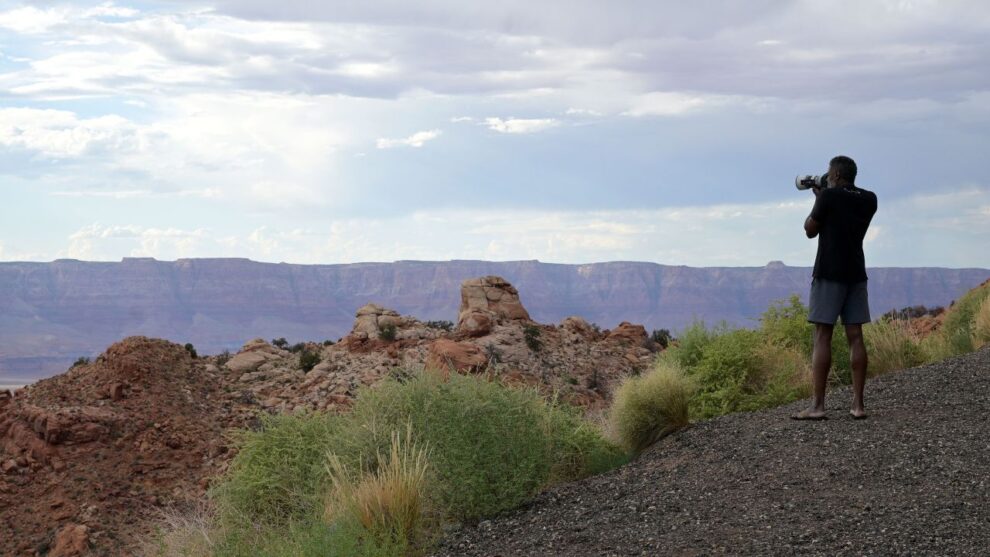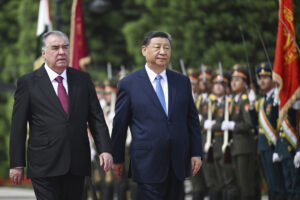President Joe Biden on Tuesday is set to designate the fifth national monument of his presidency and unveil new climate resilience funding for national parks during a visit to lands surrounding one of the seven natural wonders of the world, the Grand Canyon.
The designation would protect the area from potential uranium mining. It also protects existing grazing permits and leases, existing mining claims and will support area hunting and fishing, officials said. It encompasses approximately 917,000 acres of public land, officials said.
The president’s trip to battleground Arizona is part of a three-stop Western swing to highlight his economic agenda and legislative accomplishments this week ahead of the one-year anniversary of the Inflation Reduction Act, a sweeping climate, tax, and health care law. The monument’s designation makes good on longtime calls from tribal leaders and environmental activists, as well as Arizona lawmakers, including Democratic Rep. Raùl Grijalva and independent Sen. Kyrsten Sinema, who have advocated for the lands surrounding the Grand Canyon to be protected.
Biden will designate Baaj Nwaavjo I’tah Kukveni – Ancestral Footprints of the Grand Canyon National Monument, a move aimed at conserving “nearly 1 million acres of greater Grand Canyon landscape,” Council on Environmental Quality Chair Brenda Mallory told reporters.
“This land is sacred to tribal nations and indigenous peoples. Its sweeping plateaus and deep canyons share many of the features of the Grand Canyon. The land includes some of the most biodiverse habitats in the region, providing refuge for wildlife like bighorn sheep, bison, bald eagles and songbirds. And the area’s meandering creeks and streams flow into the mighty Colorado River, a critical water supply to millions of people across the Southwest,” Mallory said.
“Many of us have worked for decades to safeguard our Grand Canyon homelands from desecration at the hands of extractive, harmful operations like uranium mining, and today, with the designation of Baaj Nwaavjo I’tah Kukveni, we see these lands permanently protected at last,” Grand Canyon Tribal Coalition coordinator Carletta Tilousi said in a statement.
The Biden administration has been gathering public input on the designation for months, and Interior Secretary Deb Haaland – the first Native American Cabinet secretary – visited the area in May and met with tribal leaders. Haaland and her staff hiked 10 miles into the canyon to visit Supai Village, a small village that is the capital of the Havasupai Indian Reservation.
Haaland described the visit as “one of the most meaningful trips of my life,” as she detailed the importance of the lands that make up Tuesday’s designation.
The Havasupai people’s ancestors, Haaland said, “lived, farmed, and prayed among the canyons and plateaus far beyond the borders of the reservation they occupied today.” She added that the Havasupai people “were driven out of their homelands” after the establishment of the Grand Canyon National Park in 1919.
“Their story is one shared by many tribes in the southwest who trace their origins to the Grand Canyon, and the plateaus and tributaries that surround it and who have persevered by continuing their longstanding practices on sacred homelands just outside the boundaries of the park,” she said.
The designation will help ensure that the lands can be used by indigenous peoples for religious ceremonies, as well as for hunting and gathering. But it also sends an important signal to native people, Haaland said.
Native American history, she said, “is American history. And that’s what tomorrow is all about: This president and this administration see Indian country. I’m speaking to you as the first Native American Cabinet secretary as a testament to that. Feeling seen means being appreciated for who we are: The original stewards of our shared lands and waters.”
Haaland continued, “These special places are not a pass-through on the way to the Grand Canyon. They are sacred and significant unto their own right. They should not be open to new mining claims and developed beyond recognition. We are in a new era, one in which we honor tribally led conservation, advanced co-stewardship and care about the well-being of native people.”
Additionally, Biden will announce a $44 million investment to “strengthen climate resilience across our national park system,” which will be paid for with Inflation Reduction Act funding, Mallory said.
He is expected to highlight the bill’s climate provisions more broadly in a state deeply impacted by extreme heat. Here in the Southwest, heat-related deaths are climbing, emergency rooms are filling with heat-related burn victims and even animals are falling victim to heat illness. And last week in Phoenix, an exceptional heat streak finally ended when the city’s high temperature failed to reach 110 degrees Fahrenheit for the first time in a month.
Source : CNN















